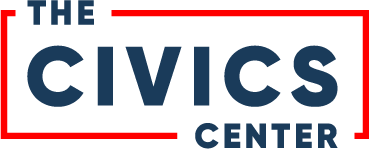This is not a mock election
Today, as we recognize the great civil rights leader Martin Luther King, Jr., our general election on November 3, 2020 is less than 300 days away.
A friend asked recently whether young people will turn out to vote.
My answer has become routine: the most common reason young people give for not voting is that they are not registered. The biggest reason young people are not registered at high rates is that they have not been asked. In presidential election years, when young people are registered, they turnout to vote at rates approaching the rates of older voters. The big gap is in registration rates. How can we ask more young people to register? How can we help high school students who want to get engaged?
I have just finished my rant, and an email arrives from a civics organization. It is well-meaning. It talks about excellence in civic engagement. It explains what excellence means in this context. It says nothing about actually voting or actually registering to vote. It talks about better curricula, recognition for schools, assessments, mock elections.
Hold on a minute. Why just mock elections?
There is a real election coming up. And real elections matter.
Simulating democratic practices is important for schools. But why isn’t an “excellent” civics program, by definition, one that includes asking every student to register to vote as soon as they are eligible and encouraging them to make a plan to vote?
Ask most folks, and they will tell you my question is silly. Everyone knows young people can’t vote until they are 18, so high school voter registration is just not worthwhile.
To quote Marge Gunderson from the movie Fargo: “Not sure that I agree with you 100% on your police work there, Lou.” Here’s why.
First, in most states, young people face no age barrier to registering to vote today if they will be 18 by November 3, 2020. This is the case in 34 states. Most teachers, most students, even most lawyers do not know this. Most curricula do not include any information about the age requirements for voting other than that, under the US Constitution, the age limit can’t be above 18.
Second, even in the states that have more restrictive registration rules, most young people will be able to register to vote at the time they graduate from high school. Some states, for example, make young people wait until they are 17 ½ before they can register to vote. In some states, students who will turn 18 after their state primary, but before November 3, have to wait until after the primary in order to register. In Texas, one of the most voter suppressive states in the country, young people must wait until they are 17 years and 10 months before they can register to vote. But in all of these examples, a large percentage of high school seniors will be eligible to register by the time of high school graduation.
We have made this map to illustrate the opportunities.
TIMING FOR HIGH SCHOOL VOTER REGISTRATION (as of Jan. 2020)
In 34 states (dark blue), high school seniors are unlikely to face age barriers to voter registration in 2020.
In 16 states (light blue), age requirements are more restrictive or more variable. We suggest holding a preliminary event early in the spring semester with a follow-up event tied to graduation. North Dakota does not require voter registration.
Check with your local election official for how state laws apply to you.
To teach young people about civic engagement, we have to tell them about the rights and opportunities that they actually have. We have to help them take advantage of those opportunities to make their voices heard not just in mock elections or referenda on whether to serve pizza or tacos at the prom.
What difference will it make? There are more than 3.5 million high school seniors in this country every year, and virtually all of them will be eligible to register to vote before graduation. They are connected to one another through social networks that are both virtual and personal. They care about one another, they care about their communities, they care about this country, and they care about the future.
In his 1957 speech, “Give us the Ballot,” Dr. King called the denial of the right to become a registered voter “a tragic betrayal of the highest mandates of our democratic tradition.”
Graduating seniors have real power. They have the power to become registered voters. They have the power to stand up for the highest mandates of our democratic tradition. And in November they will have the power to vote.
If we care about these students, and if we care about excellence in civics education, especially on MLK Day, we should let them know.

